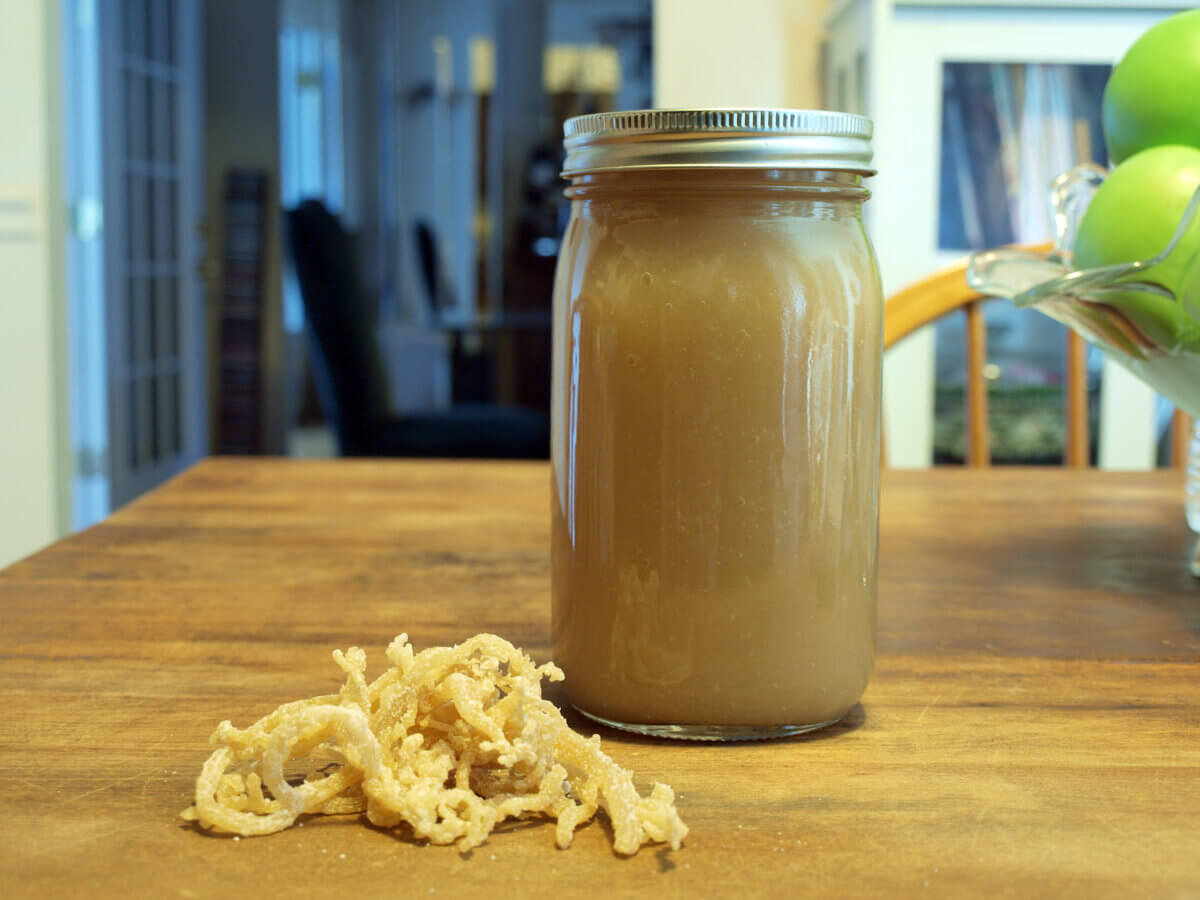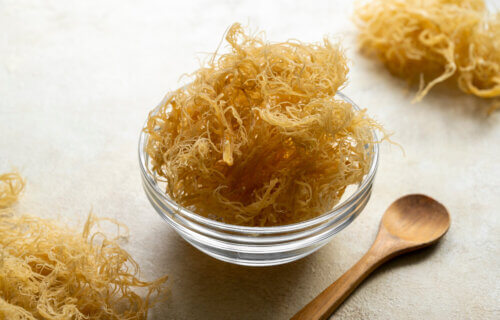Influencers all over TikTok have been taking a spoonful of sea moss daily because (allegedly) “it contains 92 minerals that our body needs.” Despite looking like slime and tasting like the ocean, people are gulping it down for all the supposed benefits — including weight loss. So, is it worth all the hype?
What is sea moss?
Sea moss is a spiky sea veggie primarily harvested for its carrageenan content. Carrageenan is used as a thickener for foods like ice cream. However, many people are now eating the gel for its nutrient content, either by adding to smoothies or taking a spoonful right from the jar. Many describe the taste of sea moss as fishy, with a thick texture that isn’t too pleasant to swallow.

Does sea moss have ’92 essential minerals’?
Sea moss has a solid nutrient profile, but most of the social media chatter about it is false and misleading. The biggest claim made about sea moss is that it contains 92 essential minerals necessary for the health of our bodies. This statement became really popular once the late Alfredo Darrington Bowman, also known as “Dr. Sebi,” mentioned it. Sebi was a self-proclaimed herbal healer and not a physician.
Unfortunately, sea moss cannot possibly contain 92 essential minerals. That number of essential minerals does not exist. It’s actually closer to 20.
The main minerals people need are:
- calcium
- phosphorus
- magnesium
- sodium
- chloride
- potassium
- sulfur
- iron
- copper
- zinc
- selenium
- iodine
- chromium
- manganese
- molybdenum
You might be wondering why Bowman said that in the first place. This is because there are indeed that many different components in sea moss, but not all of them are minerals, and few of them are actually “essential.” Some of the other things included in the 92 count may even pose harm with excess intake, such as lead, nickel, and arsenic. Sea moss stores these heavy metals.
So, is sea moss healthy?
There is very little research available that allows anybody to make bold claims about the health benefits of sea moss. Additionally, nutrient content will vary based on where it’s grown. As such, you’ll never know how much of anything is in it. This goes for the nutrients, as well as the heavy metals and other possible contaminants.
Some of the beneficial nutrients it can have:
Iodine
As with most things from the sea (salmon, shrimp, sardines, etc.), sea moss is rich in iodine. Iodine is critical for a healthy thyroid. Of note, iodine intake is generally not a concern. Most people get enough from dairy, various seafoods, and iodized salt. Additionally, it isn’t hard to eat too much iodine. Doing so can negatively affect thyroid function.
Fiber
Sea moss may be a good source of fiber, which is important for digestion, blood sugar control, and chronic disease risk reduction. However, you’d have to eat quite a few tablespoons to get a significant amount.
Magnesium
Two tablespoons of magnesium provide roughly 14 mg of magnesium. This is approximately 3.5 percent of the daily recommendation. Magnesium is important for thousands of reactions in the body.
Other nutrients:
Sea moss also contains vitamin B2, calcium, phosphorus, potassium, iron, zinc, and manganese in smaller amounts
Summary
Most related research on human health benefits has been explored in other types of seaweed, not sea moss specifically. As such, its health claims don’t have strong scientific support at all. Additionally, the idea that it contains 92 essential minerals is inherently false. While sea moss may provide some nutrients, many of them are able to be obtained from a diverse diet. If you decide to take sea moss, make sure you discuss the decision with a medical professional first.
You might also be interested in:
- Woman warns TikTok egg-cooking hack exploded, left her with badly burned face
- Gynecologic cancer misinformation on TikTok endangering women’s health, study warns
- Cancer patients are being bombarded with dangerous ‘miracle cures’ on Facebook

Lea la versión en español en EstudioRevela.com: TikTok está equivocado, el musgo de mar no contiene ’92 minerales esenciales’.
